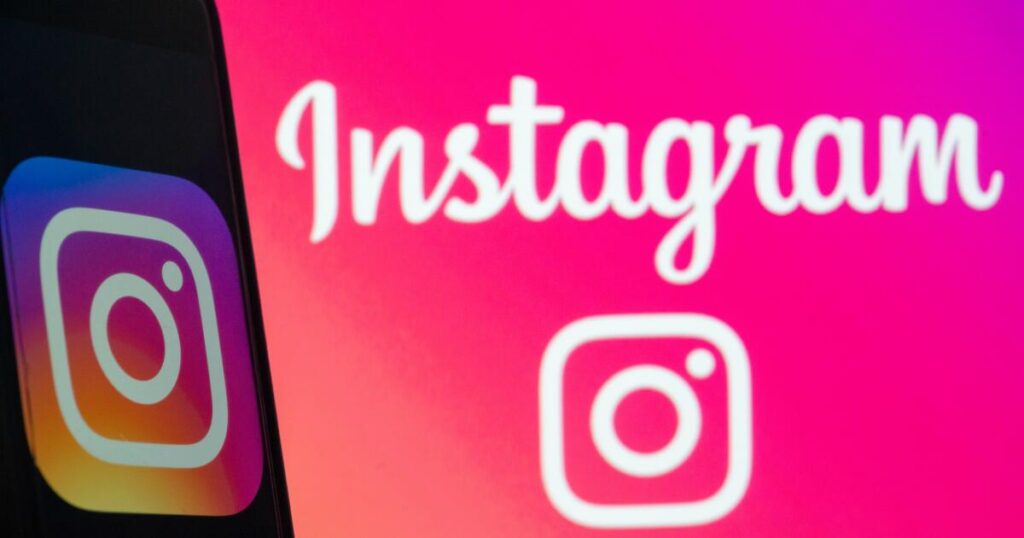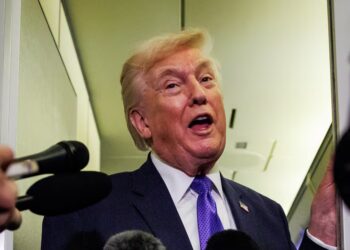WASHINGTON — A federal judge rejected the government’s antitrust suit against Meta Platforms Inc. on Tuesday, ruling that company’s acquisitions of Instagram and WhatsApp did not give it monopoly control in social media.
U.S. District Judge James Boasberg in Washington, D.C., said the five-year legal battle showed that the social media market was ever changing, not static.
He said the Federal Trade Commission failed to prove that the tech giant had used its wealth and power to extend its control of the social networking market.
“With apps surging and receding, chasing one craze and moving on from others, and adding new features with each passing year, the FTC has understandably struggled to fix the boundaries of Meta’s product market,” the judge wrote in an 89-page opinion. “Whether or not Meta enjoyed monopoly power in the past, though, the agency must show that it continues to hold such power now.”
The antitrust suit was first filed in 2020 during the first Trump administration. Back then, Boasberg said, the suits “did not even mention the word ‘Tik Tok.’ Today, that app holds center stage as Meta’s fiercest rival.”
He concluded, “Meta holds no monopoly in the relevant market.”
The decision is a major setback for the federal government and its antitrust regulators.
Biden administration appointees at the FTC had revived and pressed the suit against Meta, arguing that it should be forced to divest itself of Instagram and the messaging service WhatsApp.
But rather than win greater competition, the antitrust regulators suffered a sound defeat at the hands of a prominent trial judge appointed by President Obama.
“The court’s decision today recognizes that Meta faces fierce competition,” Meta spokesperson Christopher Sgro said. “Our products are beneficial for people and businesses and exemplify American innovation and economic growth. We look forward to continuing to partner with the administration and to invest in America.”
The FTC was “deeply disappointed in this decision,” a spokesperson said.
If Meta had lost the case, the company may have had to make significant changes to the way that it operates popular apps such as Instagram and WhatsApp. Meta’s family of apps are used by 3.54 billion people, on average, daily in September, according to the Menlo Park-based company.
Those changes could have meant more reliance on advertising on the apps or charging customers a subscription, some analysts said.
Jennifer Huddleston, a senior fellow for technology policy at the libertarian think tank Cato Institute, called the ruling good news for consumers and innovators.
“Today’s win means not only will consumers continue to be able to enjoy the products and services at issue in this case, but more generally that a more subjective approach to antitrust that would shift the focus away from consumers is unlikely to be adopted by the courts in the future,” Huddleston said in a statement.
Antitrust experts were not surprised by the ruling, however. Monopoly claims are hard to prove in a changing market, and Boasberg had voiced steady skepticism.
“It’s a real victory for Meta,” said Carl Tobias, a law professor at the University of Richmond.
The judge “just wasn’t persuaded by the evidence that the FTC put on to show that there was a monopoly on this kind of means of communicating,” Tobias said. “The facts just weren’t sufficient to make the legal finding.”
The FTC alleged that Meta maintained monopoly power in personal social networking services in the U.S. by illegally acquiring its rivals including Instagram and WhatsApp.
Meta’s “better to buy than compete” strategy suppressed innovation and also harmed consumers and advertisers because they have fewer choices, the agency said in its 2021 amended complaint against Facebook, which later rebranded itself as Meta.
The FTC and Meta have clashed over how the government defines the relevant market. The agency says that personal social networking services include apps such as Snapchat and MeWe but not TikTok, YouTube or Twitter, now named X. That’s because people aren’t downloading apps such as TikTok to stay connected with family and friends but to post content for users they don’t know.
Meta had called the FTC’s case against the company “weak” and said it “ignores reality.” The social network said in a blog post that the company competes with apps including YouTube and TikTok.
In his ruling, Boasberg backed Meta’s arguments that social media plaforms — and their uses — have changed. He
rejected the FTC’s argument that Facebook and Instagram are primarily for “personal social networking” while other apps, such as TikTok and YouTube, are for entertainment.
“The FTC’s hypothesis about how people use these apps is consistently disproven by the data,” Boasberg wrote. TikTok and YouTube “compete fiercely over a meaningful share of Meta’s business.”
As for the future, Huddleston said it remains to be seen whether this will discourage the FTC from bringing similar cases against social media companies in the future.
“Hopefully that’s one signal to policymakers that are considering antitrust cases, that those antitrust cases need to be in very objective theories of consumer harm, and not just based on presumptions that big is bad or that a particular industry finds itself in political disfavor with certain policy makers or certain administrations,” she said.
Meta also continues to face challenges ahead as artificial intelligence advances, changing the way people search and create content. It also continues to face competition from social media rivals such as TikTok.
“We’re constantly seeing that these platforms not only have to evolve, but are competing with changes in the overall market dynamics,” Huddleston said.
Times staff writers Savage reported from Washington and Lee from San Francisco.
The post Judge rejects FTC case, says Meta doesn’t hold social media monopoly appeared first on Los Angeles Times.




